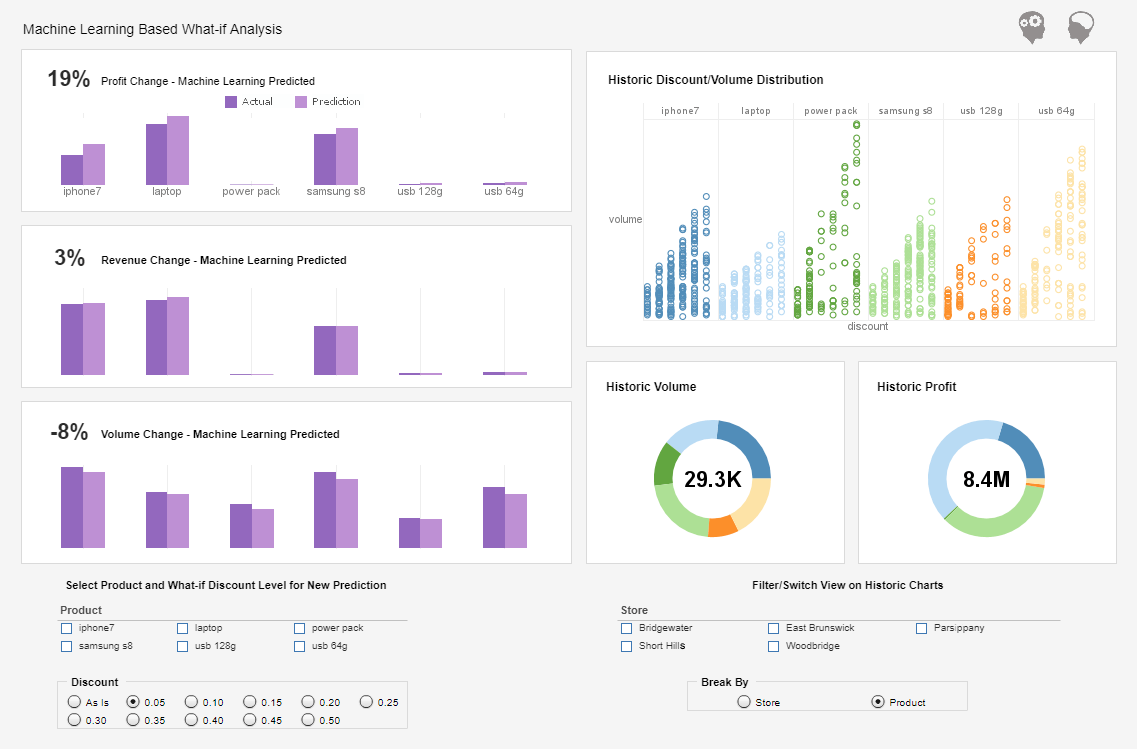InetSoft Webinar: The Problems and Solutions to Operational BI
This is the continuation of the transcript on "Facing the Challenges of Operational BI” hosted by InetSoft. The speaker is Jessica Little, Marketing Manager at InetSoft.
What are the problems that an organization should be unaware of? Well, the first big problem is that the operational personnel simply won't use it, and the reasons are many there. Perhaps they don’t understand it. They were caught off guard by this implementation being dropped more or less in their laps. They may not be educated about how to use it. They are very used to their operational interfaces. And operational business intelligence has a very different kind of interface, so they may not have been trained on how to use it.
And finally, we also have to consider that they may not have even been involved in the development and therefore don’t even have any kind of connection or understanding of what's going on, and therefore they lack the support for the overall program. The other problem there is that if the executives themselves are not on board with the operational business intelligence and the massive information management changes. They can be pretty big.
If the users do not get the benefit of the analytics, the project can be a waste of the money. It certainly would miss the mark. It may not be a complete waste of time or money because you do learn things, and you certainly do get better the second time around. But it's certainly would be wide of the mark that you had wanted to reach.
Disruptive Operational BI
Another problem that organizations should be aware of is that for IT, especially the implementers, operational BI may actually be rather disruptive. Operational business intelligence, itself, can be very disruptive to the operational environment, and it can be disturbing, to say the least, to the operational personnel. IT also needs – or at least the BI implementers need to understand all about the operational processes. Remember I started out by saying before we didn’t have to know about operational processes. All we had to do was suck the data out of the operational systems and put them into our own world.
Well, all of a sudden, now, the implementers do indeed have to understand the operational world, and they need to make sure that they are creating the right systems that will work for these operational personnel. And that’s something else to be concerned with in this case. What are we doing to the operational systems? If we have to embed or integrate operational business intelligence into these operational systems, is that even feasible?
I think we need to do a feasibilty study on the operational systems themselves so that we can understand, are they, for example, too fragile or too rigid or too old to bring in a new stream of data. This might compromise the actual performance of these operational systems so badly that it may actually break them.Now certainly, we don’t want to soft sell the technology, but the good news is that the technology like InetSoft's is here today to help us with this environment. Now we need to focus on these soft tissues, if you will, cultural issues, political tissues. Let’s just start with a few of these.
For example, we need to make sure that the operational BI implementers do have the ear of the operations personnel, that they do understand how a customer service rep, for example, does their job. How do they interface with the systems? What kinds of questions do they get? So these two groups need to work very closely together, and certainly each needs to have a voice in the development and the deployment of the system itself.
Building an Operational BI Dashboard
You don’t want them the IT coming in and saying, “Well, here it is,” and the customer service rep saying, “Well, this doesn’t do what I need. It complicates my processes.” There is nothing worse than having IT declare that I know better than you do, businessperson. And there are some other things, for example, understanding and documenting the business process before building an operational BI dashboard.
It’s not getting in the face of the operational personnel. It's actually documenting how they do their job, these business processes, so that we make sure that as we bring in operational business intelligence, we are not invading their space, if you will. Unfortunately, what most IT or BI implementers focus on is the data, and the data warehouse, the datamarts, whatever it is, the ultimate targets for that data.
What we need to do is change that mindset, if you will, and make sure that we understand and address the business processes, not just the business data, these processes that take place within the operational units. So deploying operational BI is not just a matter of deploying the technology. Certainly the technology is needed, as I mentioned. But it's really understanding the business processes and providing this interactive intelligence, if you will, that affects how people work, how they do their job, understanding the operational processes and procedures, understanding this throughout the design the implementation, even the rollout and ultimately when we have to make revisions.


